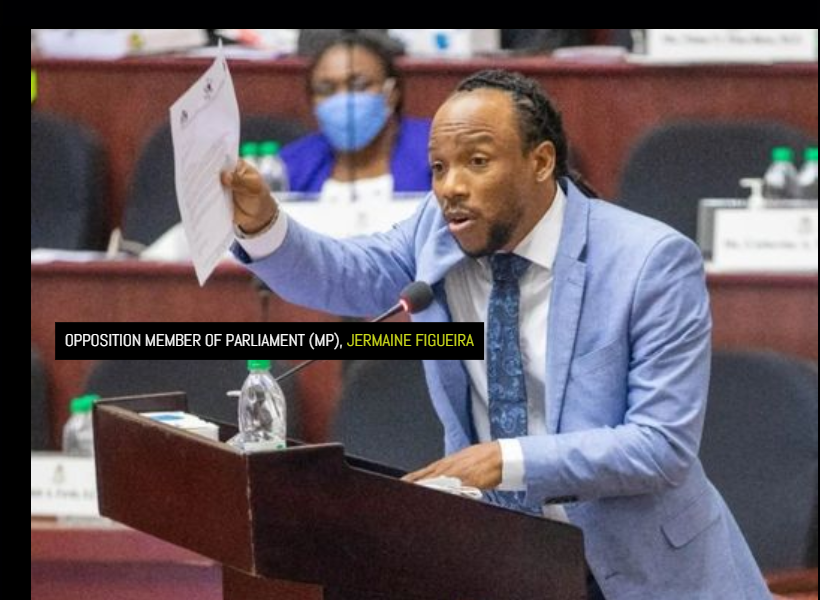Opposition Member of Parliament (MP), Jermaine Figueira says marijuana cultivation will add more to Guyana’s treasury than sugar, which sees billions of dollars being pumped into the Guyana Sugar Corporation (GuySuCo) annually to keep the industry afloat.
He noted that the time is now for Guyana to learn from countries that have capitalised on marijuana production, adding that such a sector in Guyana could outperform sugar.
He argued that countries such as The Netherland, the United States of America, Antigua, and Jamaica have all witnessed significant economic benefits following the legalization, cultivation and sale of marijuana.
“Drawing on the experiences of these countries, Guyana will not only learn, but equally tap into the high potential economic gains and its spin off benefits once it moves away from its present backwardness when it comes to this economic/money crop; a crop that can actually give the country economic benefits rather than take it as seen with sugarcane/ GuySuCo,” the MP said.
The opposition legislator noted that the “global perspective” on marijuana has changed dramatically over the years, with some jurisdictions moving from strict prohibition of marijuana to implementing varying degrees of legalization and acceptance.
The MP added that there is a need for more “progressive” marijuana reforms as he highlighted the recent discovery and destruction of $2.5 billion dollars’ worth of marijuana at De Veldt, in Region 10.
Figueira said that one of the most immediate benefits observed in countries that have legalized marijuana is a substantial increase in their government’s revenue through taxation.
“For example, in the United States, states like Colorado and California have generated billions of dollars in tax revenue from marijuana sales. In Colorado, marijuana tax revenues surpassed US$387 million in 2020, in 2024, that state has gained US$2.8 billion. Can you imagine what such funds can do for our people, our teachers and public servants?”
He added that if Guyana can manage to replicate a similar taxation framework, it would provide a new and significant source of income for the government. These funds, he said, could be reinvested into public services such as healthcare, education, sports, and infrastructure. These investments, he hastened to add, could foster overall societal benefits and growth, and reduce over dependence on the oil and gas sector.
Also, the politician noted that the legalization and cultivation of marijuana could have the potential to create numerous jobs across various sectors, including agriculture, health, retail, distribution, and regulatory agencies.
“In the Netherlands, and more specifically Amsterdam, it is renowned for its marijuana/cannabis coffee shops, and have created permanent employment for thousands of individuals and have attracted millions of tourists annually, significantly boosting their local economy,” he said.
Similarly, he noted that Jamaica has capitalized on its cultural association with marijuana, integrating it into its tourism industry. Tourists flock to these destinations for the unique experience of legally purchasing and consuming marijuana in a regulated environment.
“Guyana, equally with its rich cultural heritage and natural beauty, could develop a merger of its eco/ cannabis tourism sector that will not only create thousands of jobs but attract millions of international visitors annually, boosting local businesses and generating additional revenue,” the MP emphasised.
Additionally, he said that Guyana’s agricultural sector stands to benefit significantly from the cultivation of marijuana.
“Our country’s favorable climate and fertile soil provide the ideal conditions for growing high-quality cannabis. By investing in this potential sector, Guyana can diversify its agricultural portfolio, reducing its dependency on traditional crops,” he noted.
Figueira noted that the medicinal benefits of marijuana are well-documented, with applications in pain management, epilepsy treatment, and alleviation of symptoms associated with chronic illnesses.
“The United States has seen a burgeoning medical marijuana industry, with states like California and Florida leading in research and development. Jamaica has also invested in medical marijuana, establishing itself as a leader in cannabis research in the region and further afield.
Guyana equally could develop its own medical marijuana industry, potentially becoming a hub or the epicenter for research and development in the Caribbean and South America. This will, if done, attract investment, create high-paying jobs, and improve healthcare outcomes for our citizens and visitors who come to our country,” Figueira said.











